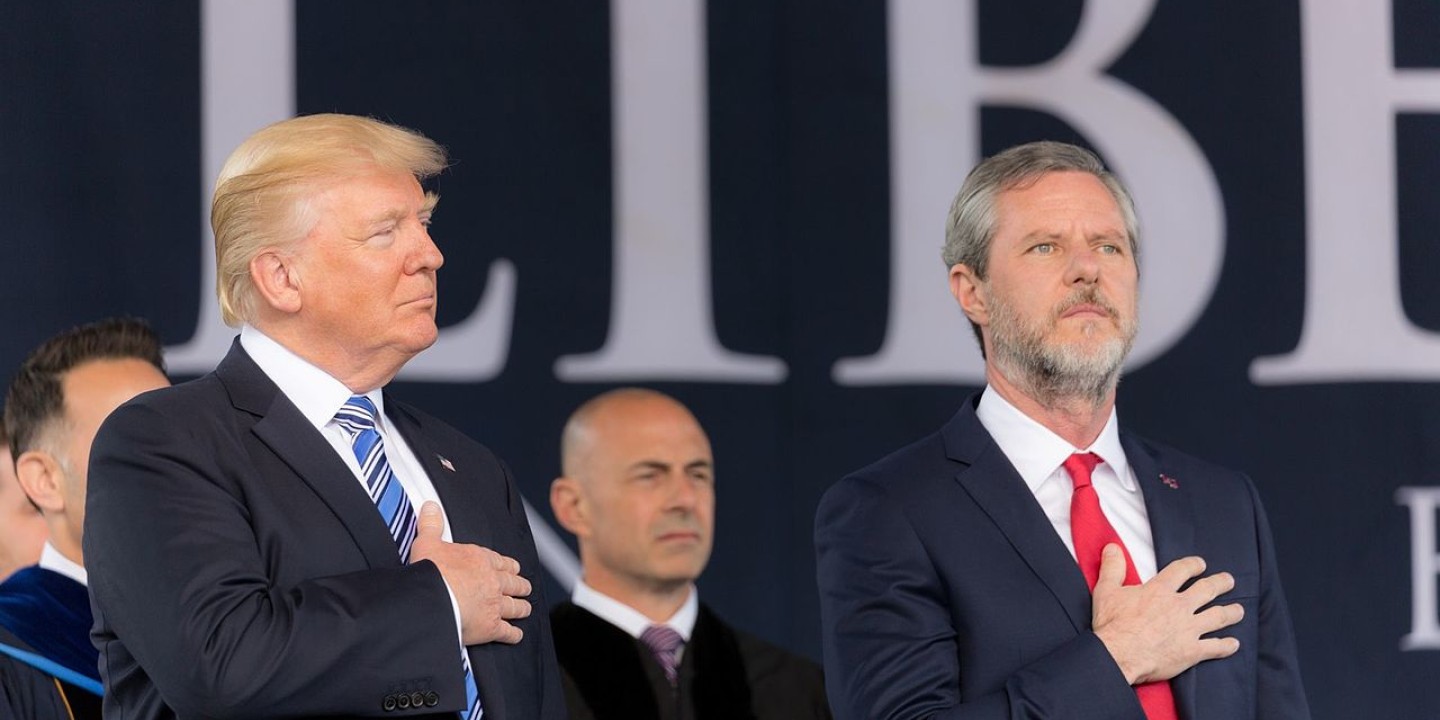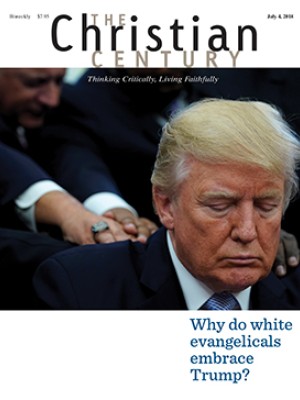If Trump were a liberal, would liberal Christians resist him?
White evangelical political loyalties and their lessons for the rest of us

The overwhelming support of white evangelicals for Donald Trump has puzzled and dismayed many Christians, including some in the white evangelical world. Why would conservative evangelicals embrace someone whose life is so at odds with Christian values, especially when there were many other Republican candidates who had more solid credentials both as evangelicals and as conservatives? When evangelical organizer Tony Perkins was asked this question, he explained that evangelicals were tired of being “kicked around” by liberals like Barack Obama and glad that finally that there was “somebody on the playground willing to punch the bully.” In other words, white evangelical Christians felt under siege and were looking for somebody to land a few punches on the perceived enemy, however wildly those punches were thrown.
It turns out Perkins’s assessment from inside the movement aligns closely with that of historians John Fea and Seth Dowland. Their articles in this issue explore how the politics of fear and resentment shaped the 2016 campaign (see Fea’s article) and how anxieties about race and whiteness have shaped evangelical identity (see Dowland’s article).
Read our latest issue or browse back issues.
The merger of evangelical Christianity with Trump’s agenda appears so thorough that some evangelicals who oppose it are ready to abandon the label. Earlier this year, columnist and Republican policy analyst Peter Wehner, a former speechwriter for George W. Bush, declared that he would no longer describe himself as an evangelical because the term is so identified with racism, misogyny, and contempt for government that it undermines a Christian witness to Jesus. For him, the evangelical alliance with President Trump offers a cautionary tale about the danger of allowing a narrow political agenda to eclipse and finally define one’s religious identity.
Are there any lessons from this tale for Christians outside the white evangelical world? Surely mainline Protestants are not immune to making questionable political alliances. And it’s not impossible to imagine progressive church leaders blessing a hugely flawed candidate in the belief it was the best alternative for advancing a progressive political agenda.
There is no fail-safe method for avoiding the hazards and compromises of political judgments. Nevertheless, white evangelicals’ uncritical embrace of Trump highlights for Christians the importance of asking themselves this question: Do both the method and message of our political engagement point to something about the witness of Jesus in the world, or have they begun to obscure it? It’s important to remember that Jesus’ own public witness was never based on fear or resentment, nor was it designed to retain or retrieve earthly power for himself and his companions. He identified instead with the outcast and neglected and pointed toward the creation of a society that includes everyone.
Following this example, the Christian’s basic task in the political arena is to remind rulers of those whose welfare has been forgotten and those to whom justice has been denied. With that agenda in mind, we can hope and pray to make a faithful witness.
A version of this article appears in the print edition under the title “Public witness and how it is compromised.”






